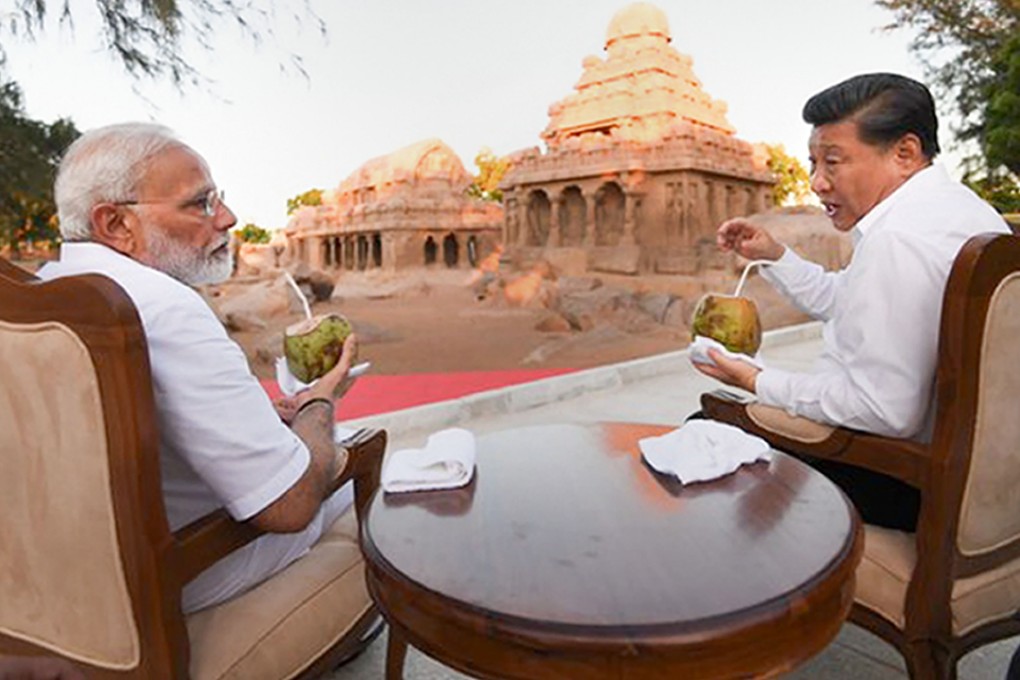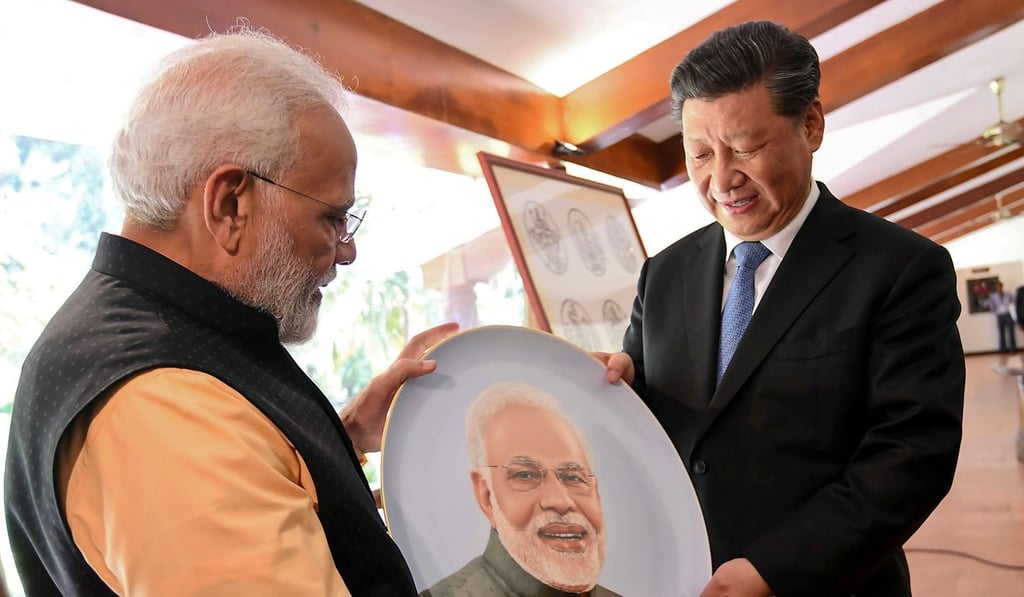Advertisement
Opinion | Now for the hard part: another ‘informal summit’ is over but China and India are no closer on core issues
- Chinese President Xi Jinping and Indian Prime Minister Narendra Modi must address the difficult questions surrounding the fundamentals of their countries’ relationship, Ankit Panda says
- Leaders may have grown used to sharing the stage for photo opportunities, but the geopolitical issues that divide their nations remain
Reading Time:3 minutes
Why you can trust SCMP

The recent meeting between Indian Prime Minister Narendra Modi and Chinese President Xi Jinping in the southern Indian city of Mamallapuram was meant to provide a forum for the leaders to build on the progress they had purportedly made in the central Chinese city of Wuhan in 2018, their first “informal summit”.
Advertisement
In theory, an informal summit setting has value. It allows the two leaders to get to know one another. Modi, leader of the world’s largest democracy with a political mandate unseen in more than three decades, and Xi, effectively China’s leader for life if he chooses, stand to be significant figures when the history of Asian geopolitics in the first half of the 21st century is written.
Candid exchanges between the two, therefore, are meant to pave the way for progress. However, there’s little indication that this sort of progress is really under way as part of the Wuhan-Mamallapuram process.
Xi and Modi may have grown used to sharing the stage for photo opportunities on each other’s soil, but the geopolitical issues that divide India and China remain.

Advertisement
To keep the mood positive in Mamallapuram, neither pressed on raw nerves. On the Indian side, these include the recent decision by the government to abrogate parts of article 370 of the constitution, changing the internal administrative status of northern Jammu and Kashmir state. For China, complaints about “core interests” – including the protests in Hong Kong, freedom of navigation in the South China Sea, and even atrocities in western Xinjiang Uygur autonomous region – were omitted.

Advertisement
